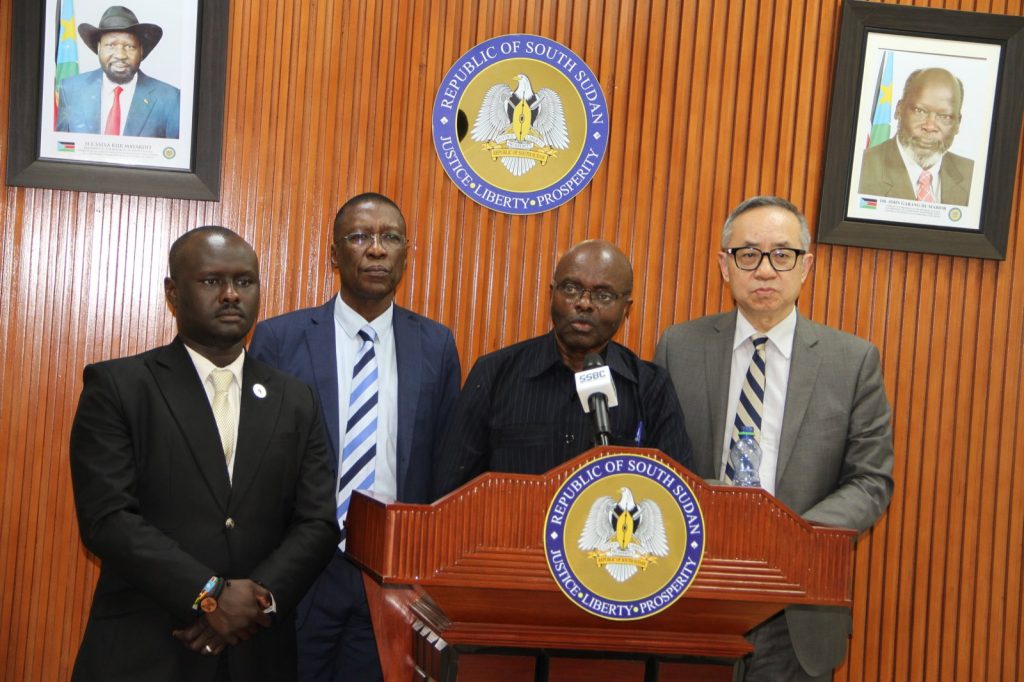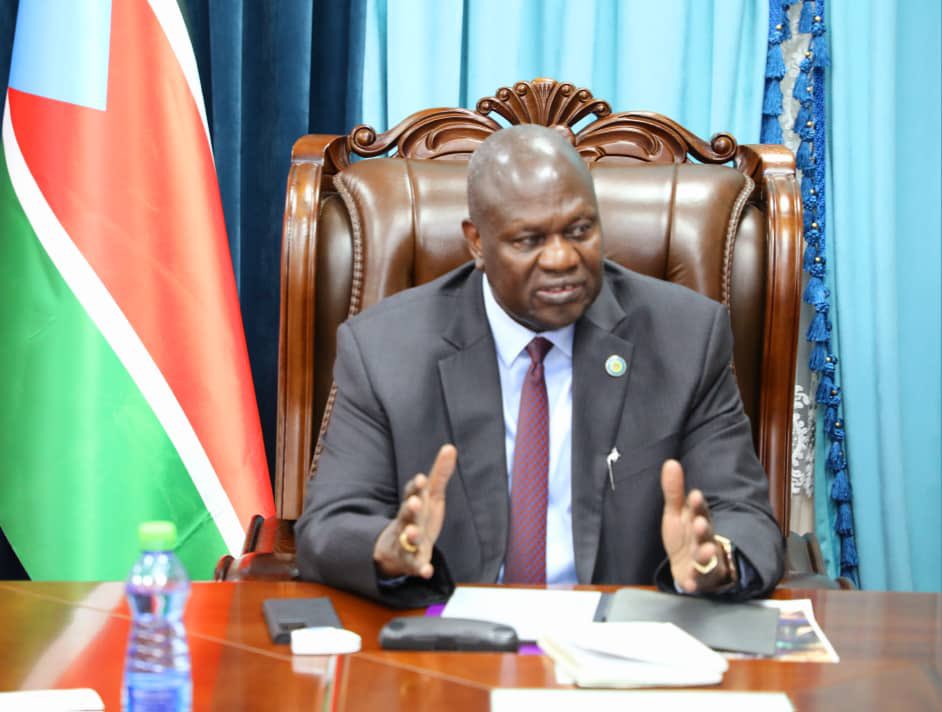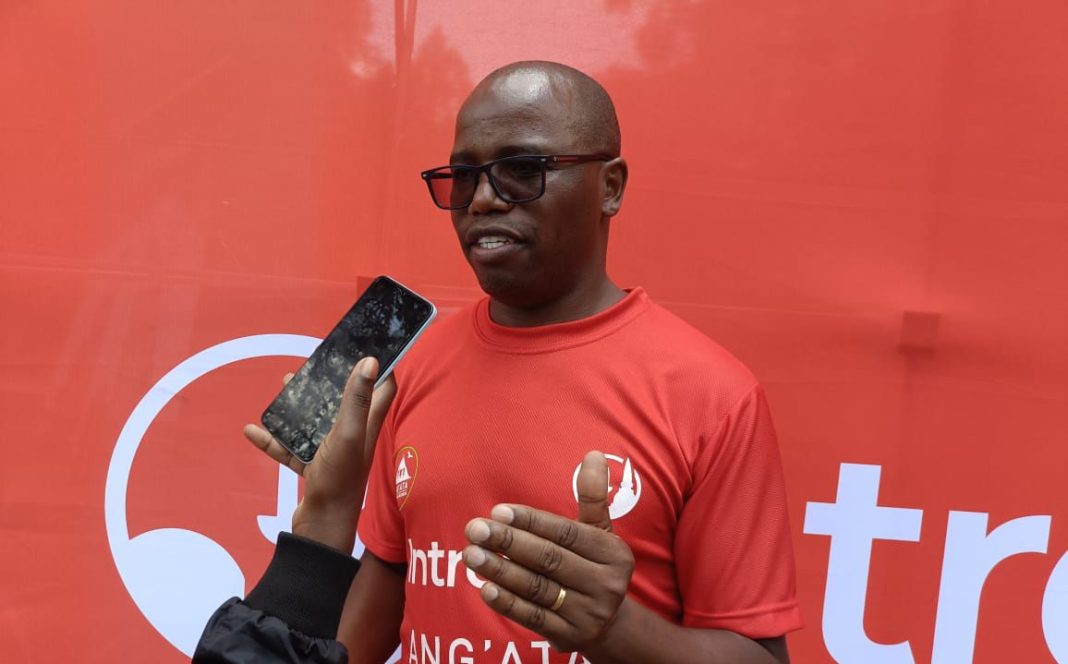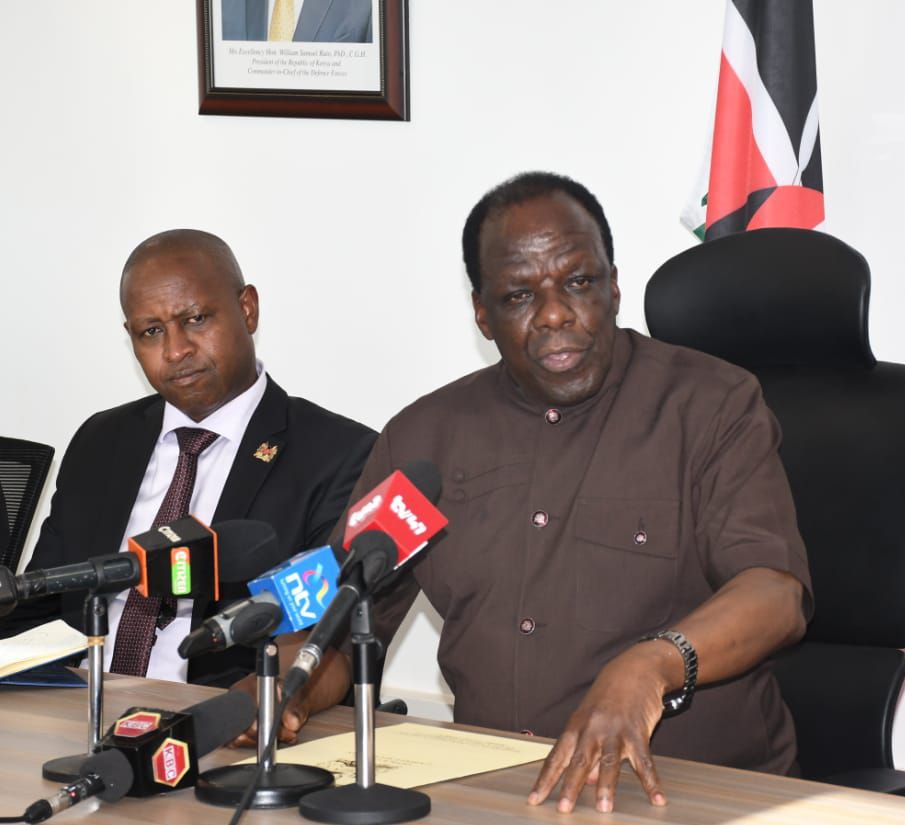The Intergovernmental Authority on Development (IGAD) is set to convene the 43rd Extraordinary Summit of Heads of State and Government to address the evolving situation in South Sudan.
The Summit is set to be held virtually on Wednesday, 12th March 2025.
IGAD, as the guarantor of the Revitalised Agreement (R-ARCSS), remains steadfast in its commitment to promoting dialogue, de-escalating tensions, and securing a peaceful future for the people of South Sudan.

This comes amid tensions are running dangerously high after an opposition-linked militia overran an army base loyal to President Salva Kiir in South Sudan’s Upper Nile state International Crisis Group Reports.
Regional leaders should urgently press Kiir and Vice President Riek Machar, who has ties to the militia, to calm the situation.South Sudan is slipping toward renewed conflict and political upheaval.
On 4 March, a Nuer militia with ties to Riek Machar, a former rebel leader who is now first vice president, captured an army base in Nasir, a major town on the South Sudan-Ethiopia border.
Machar accuses the army, under President Salva Kiir, of launching attacks on his forces in nearby Ulang county on 25 February, as well as on his loyalists in two other parts of the country’s west.
Tension in the capital Juba is sky-high. Kiir has arrested several of Machar’s top allies in response to developments in Nasir, threatening the fragile unity government, formed under a 2018 peace deal that ended the country’s five-year civil war.
More combat in Upper Nile is likely. From there, it risks merging with the war in Sudan, potentially triggering prolonged proxy fighting in South Sudan. African heads of state with influence, including those from Kenya, Ethiopia and South Africa, should step in to calm the alarming situation before hostilities escalate.
The 2018 agreement between Kiir and Machar to end the civil war has long been tenuous. While until now it has prevented the main combatants from clashing at full scale, the country routinely endures shocking violence at the local level less tied to the Kiir-Machar rivalry. But the precarious national détente is now under threat, thanks in no small part to the civil war raging in neighbouring Sudan.
That war, which broke out in April 2023 between the Sudanese military under General Abdel Fattah al-Burhan and the paramilitary Rapid Support Forces (RSF) under General Mohammed Hamdan Dagalo “Hemedti”, has put mounting pressure on Kiir’s government, in two forms. First, South Sudan lost two thirds of its state revenues after its main oil export pipeline burst near the Sudanese capital Khartoum amid fighting in 2024.
Conflict has impeded repairs, and oil is still not flowing. Secondly, the related economic woes have plunged Kiir’s government into a fiscal crisis and deprived the president of the funds that sustained his patronage network, straining his ability to keep his regime afloat.
Discontent is widespread. Against this backdrop, Kiir has struggled to maintain working relations with both of Burhan and Hemedti (concededly, a difficult task). As a result, both have been tempted, at various points, to strong-arm his regime.
For the first year of Sudan’s war, Kiir was perceived as being closer to Burhan, especially since the oil pipeline ends in Port Sudan, where the Sudanese military established its seat of government after being chased from Khartoum.
But the pipeline also runs through territory controlled by Hemedti’s forces, meaning that keeping it functional – or fixing any breach – requires a diplomatic high-wire act. Many in Juba believe the RSF intentionally allowed the pipeline to fall into disrepair, given that transit fees were accruing primarily to its rivals in Port Sudan, forcing Kiir to open high-stakes negotiations with the RSF to resume oil flows.
These talks and South Sudan’s fiscal crisis appear to have brought Kiir closer to the RSF, as well as the United Arab Emirates, widely understood to be the rebels’ main patron. In turn, relations between Juba and Burhan’s Port Sudan authorities deteriorated sharply.
They are now at a low point, especially following a new political alliance between the RSF and the Sudan People’s Liberation Movement-North (SPLM-North), a Juba-aligned Sudanese rebel group active in Sudan’s south. Hostilities in Upper Nile could be the first major violent spillover from Sudan’s war into South Sudan.
Hostilities in Upper Nile could be the first major violent spillover from Sudan’s war into South Sudan. The Sudanese military has a decades-long history of exploiting ethno-political fissures in South Sudanese society to fuel conflict. Crudely speaking, these pit the Dinka, Kiir’s ethnic group and the nation’s largest, against the Nuer, Machar’s group and South Sudan’s second largest.
Many South Sudanese and diplomats serving in the region suspect that the Sudanese army has reactivated its old ties to Nuer militias in Upper Nile and sent military supplies south, which would help explain the sudden eruption of fighting. Crisis Group’s own inquiries indicate that this notion is plausible.
Should the country return to all-out war, Machar would be perilously exposed. Several top Nuer generals and Machar allies have gone into hiding in the last few days, fearing the worst. Tensions are now especially high following the death of Major General Majur Dak, a Dinka commander of the overrun Nasir base, who was surrounded by hostile Nuer forces.
The president is facing other challenges besides. Rumours are rampant that Kiir’s health is failing, which has intensified the jockeying over the presidential succession. As noted, Kiir does not appear to have the cash he used to help paper over such divisions as in the past.
The collapse of the regime and the 2018 arrangement could prove catastrophic for [South Sudan].While many South Sudanese believe Kiir and Machar have clung to power for far too long, and while the government provides almost no services as humanitarian conditions across the country are abysmal, the collapse of the regime and the 2018 arrangement could prove catastrophic for the country.
It could result in renewed massacres and ethnic cleansing; turn South Sudan’s territory into a free-for-all of various militias and illicit activity; and open a new arena for proxy war in the region. In particular, civil war or state collapse in South Sudan would likely merge with the conflict in Sudan, with politicians and militia leaders allying with either Burhan and Hemedti (and their backers) for arms and support.
It could also give belligerents in Sudan, as well as armies from other neighbouring countries, free rein to use or occupy South Sudanese territory for their own purposes.
Avoiding this scenario is of critical importance and may still be possible. All with influence should act with great urgency to de-escalate the tensions in South Sudan before they heighten further. Kenyan President William Ruto spoke with Kiir and Machar on 6 March.
He could coordinate his efforts with others who have sway, such as South African President Cyril Ramaphosa, an occasional broker in South Sudan’s politics, and Ethiopian Prime Minister Abiy Ahmed, who has ties to nearly everyone involved, including both Burhan and Hemedti. The UN, through its large peacekeeping mission in South Sudan and its presence in Sudan, should offer to assist this diplomacy.
It should also prepare its peacekeepers to take measures that could help prevent massacres along ethnic lines (as occurred in Juba and elsewhere in 2013), including by sheltering any who may flee to its bases should violence erupt and by preparing mobile units that can respond quickly to protect civilians trapped by fighting.Though South Sudan could quickly slip back into full-scale conflict and ethnic bloodletting, such horror may still be averted if regional leaders intervene with high-level diplomacy before the situation spins further out of control.




